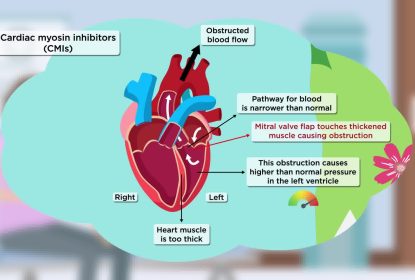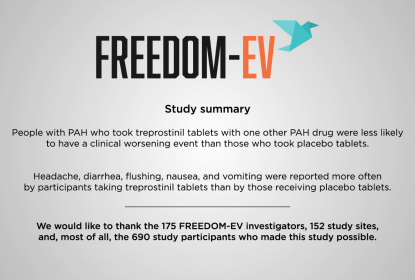
Plain language summary of the MAJIC-PV study: A video summary from the authors’ perspective
Polycythemia vera (PV) is a type of blood cancer. People with PV make too many red blood cells in their body, making their blood thicker than normal, and increasing their risk of developing blood clots, which can lead to a heart attack or stroke. For people with PV who are at high risk of developing blood clots (high-risk PV), a chemotherapy called hydroxycarbamide (also known as hydroxyurea) is often used to lower their blood counts. However, hydroxycarbamide does not always work in everyone and in some people, it may cause side effects that stop them from continuing treatment. Many people with PV have a faulty gene called Janus kinase 2 (JAK2) that produces a faulty JAK2 protein. Ruxolitinib is a cancer treatment that targets this faulty JAK2 protein and has been shown to slow down the growth of blood cells. This can improve symptoms in some people with PV.
The MAJIC-PV study looked at using ruxolitinib to treat people with high-risk PV who were not able to take hydroxycarbamide, either because of side effects or because hydroxycarbamide had stopped working for them. In the study, researchers divided adults with high-risk PV into two groups to receive either ruxolitinib or the best available therapy. They found that within 1 year of treatment, people who received ruxolitinib were more likely to achieve normal blood counts and spleen size than people who received the best available therapy.
In this video, Prof. Claire Harrison presents the results of the MAJIC-PV studies and provides her perspectives.
 Meet the author(s):
Meet the author(s):
Dr. Claire Harrison is a Professor of Hematology and Deputy Chief Medical Officer at the Guy’s and St. Thomas’ NHS Foundation Trust in London, UK. Prof. Harrison became a Consultant at the Guy’s and St. Thomas’ NHS Foundation Trust in 2001. The focus of her work is to improve diagnosis, risk definition and therapy of myeloproliferative neoplasms (MPNs), for which she has a national and international reputation.
Dr. Harrison works on translational work and clinical trials, and collaborates internationally with many centres including Addenbrooke’s, Mayo and Mount Sinai. She is a founder of MPN voice, an advocacy group that provides accurate information and emotional support to everyone who has been diagnosed with MPNs and their families and friends. Dr. Harrison also collaborates with other patient charities such as the MPN research foundation and Blood Cancer UK.
Original article(s):
Harrison CH, Fox S, Boucher, R, et al. Treatment of the blood cancer polycythemia vera with ruxolitinib in the MAJIC-PV study: a plain language summary. Future Oncol. 2024 1:1-12. doi: 10.1080/14796694.2024.2406597.
Click the link below to read the article.
Publication DOI: https://doi.org/10.1080/vjbm-2024-0008
Plain language summary of the MAJIC-PV study: A video summary from the authors’ perspective (2024). Video Journal of Biomedicine. 8(13). DOI: 10.1080/vjbm-2024-0008


